
Welcome to the ezine produced by SGI Buddhists that prompts the positive, kindles the constructive, highlights the hopeful and leaves you feeling - well, up!

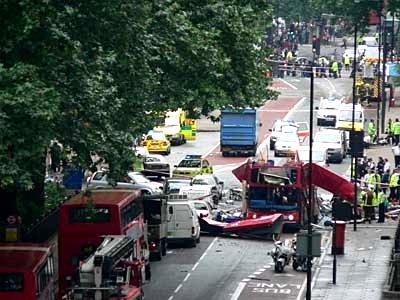 If forgiving someone who has done you wrong is difficult, how is it possible to forgive those who have killed your loved ones?
If forgiving someone who has done you wrong is difficult, how is it possible to forgive those who have killed your loved ones?
Marina Cantacuzino investigates
When
Anthony Walker's mother spoke of forgiving the two racists who killed her son,
or the entire Amish community in Pennsylvania forgave the man who shot so many
of their young daughters dead, or the Rev Julie Nicholson stepped down from the
pulpit because she couldn't forgive the suicide bomber who killed her daughter
in the 7/7 bombings - it sparked a
debate and got everyone talking.
Forgiveness, it seems, inspires strong feelings and makes headline news, although most people are probably more likely to sympathise with Julie Nicholson's position than that of Gee Walker. Even though there was universal respect for this mother's dignified response, public opinion was polarized. For some to talk of forgiveness in such a horrific case seemed illogical and ill-conceived, but for others it was a message of hope, a value strong enough to put an end to the tit-for-tat settling of scores which has wreaked havoc over generations. We assume Gee Walker's response must be exceptional: surely most mothers in her position would want to see their son's killers fry?
But
is she really so unusual? Having spent
two years gathering stories from those who have chosen a route out of vengeance
(a journey that may or may not lead to forgiveness) this kind of reaction is
far less atypical than we might think, and certainly does not only belong to
the spiritually devout. Andrew Rice,
whose brother was killed in the twin towers on 9/11, was certainly on to
something when he told me, 'those people shouting loudest for retribution are
so often the leas t affected.'
t affected.'
'Those people crying
loudest for retribution so often seem to be the least affected.'
Andrew Rice
As the founder of The Forgiveness Project (an organisation which seeks to explore forgiveness through story-telling) and having met with many victims and perpetrators of violence, I am frequently contacted by media people looking for forgiving victims like Gee Walker. When one producer told me recently he was having more trouble finding victims who were still stuck in the vengeance groove, than those who had sought to reconcile, I wasn't entirely surprised.
The simple truth is that very often, for those whose life has been hurled into chaos through violence, the only route to sanity is to search for meaning within something so utterly meaningless. Forgiveness, as Archbishop Desmond Tutu, noted 'is not just to be altruistic, it is the best form of self-interest'. In a sense therefore, by releasing the victim from the grip of the perpetrator, forgiveness might be described as the ultimate revenge. Think back to immediately after 7/7 when practically every relative interviewed who had lost a loved one did not call for revenge, but rather to understand the mindset of ordinary young British men who could commit such a bloody act in the name of their ideology.
Following any malicious or violent act, a relationship is formed which inextricably links victim to perpetrator. Revenge identifies forever the person with the deed, and can freeze relationships and life stories forever.
Forgiveness, therefore, appears to be a useful key to unlock the cage of hatred, a means of breaking that brutal bond.
When I met Bud Welch in Oklahoma City he told me that after his daughter was killed in the bombing of the Murrah building in 1995, all he wanted was to see Tim McVeigh executed. He also started to self-medicate with alcohol; until, as he said, 'one cold day in January 1996, I came to the bombsite - as I did every day - and I looked across the wasteland where the Murrah Building once stood. My head was splitting from drinking the night before and I thought, "I have to do something different, because what I'm doing isn't working."Â'
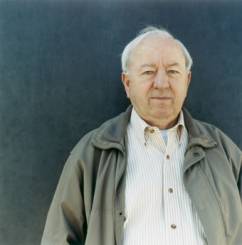
'About a year before the
execution I found it in my heart to forgive Tim McVeigh. It was a release for
me rather than for him.'
Bud Welch
Bud, like many victims I've met, had discovered that vengeance didn't work: his only panacea was to start searching for some grain of meaning. 'For the next few weeks I started to reconcile things in my mind,' he said, 'and finally I concluded that it was revenge and hate that had killed Julie and the 167 others. Tim McVeigh had been against the US government for what had happened in Waco, Texas, in 1993, and seeing what he'd done with his vengeance, I knew I had to send mine in a different direction. Shortly afterwards I started speaking out against the death penalty.'
My work over the past few years has shown me that forgiveness is an inspiring, complex, exasperating subject, which provokes strong feelings in just about everyone. I have received hate mail for allowing the exhibition I created (The F Word: Images of Forgiveness) to give voice to both victim and perpetrator; but I've also had mail from people who claim their outlook on life has been forever changed by stumbling across such inspiring personal stories of forgiveness and restitution.
I am extremely careful not to advocate that people SHOULD forgive. Forgiveness is a choice and cannot be imposed on anyone by anyone - whether friend, government or religious leader. So, when on one local radio phone-in I heard a member of a church telling a still bitter and angry victim of crime that they must learn to forgive, I shuddered; just as I shuddered the other day when someone silenced me from talking about forgiveness with the words, 'actually I'm an eye for an eye kind of man myself.' As he walked away, it struck me that at least forgiveness opens doors and presents possibilities of change, whereas revenge locks you into predictable repeated behaviour, fixing the narrative forever.
On the other hand, if the only way for someone hurting deeply to get through the day is to imagine the perpetrator hanging by the neck, then that is clearly a coping strategy to hold on to. The question is - how long can vengeance be used as a sedative? I was in Holloway Prison recently when a young woman spoke powerfully about her desire for revenge on a partner who had cheated on her. 'But you know,' she told the other women in the group, 'once I'd got even with him, I didn't feel any better.'
When I met Margaret McKinney in Belfast, whose son Brian was one of the IRA's victims, she told me how her anger for the first few years had been so intense that if she'd known who her son's killers were she would have asked for their children to be killed; because, as she said, 'I wanted them to know how it felt.'
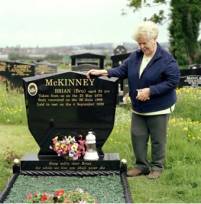
'If I'd known who
Brian's killers were I would have gone out and killed their children. I wanted
them to know
how it felt.'
Margaret McKinney
It was only after several years that she was able to let go of this anger, and only after the IRA disclosed the whereabouts of Brian's body that she was able to find peace. Nowadays she would like to meet the person who killed her son; she'd like to sit him down at her kitchen table and ask 'Why?'
This search for meaning, the yearning to make sense of something so horrendous - to find 'the gift in the wound' - is the common theme of many of the victims I have met. Canadian born Katy Hutchison told me how she looked into her sleeping children's eyes on the night her husband was killed, 'and I promised them and myself that underneath the horror of what had just happened we would find a gift.' These days Katy talks to school-children alongside Ryan Aldridge, the man who killed her husband, on the subject of violence and forgiveness.
Much of my work centres on collecting stories of forgiveness and reconciliation. When I once attempted to find a Holocaust survivor who had, over the years, made moves towards reconciliation, I was told by the Jewish refugee group I'd contacted that this was not a subject they could enter into. They assumed The Forgiveness Project was promoting forgiveness as a cure-all. I did not get a chance to tell them that an important voice within the project is Mary Kayitesi Blewitt, who lost fifty members of her family in the Rwandan genocide and who runs an organisation here in the UK to support survivors (SURF). Mary believes that genocide is beyond forgiveness. 'Survivors say they've forgiven, but many don't understand the word' she says. 'The world is obsessed with moving on, but without dialogue, accountability or apology how can you move on?'
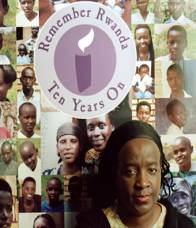
'If there was one person who had done all
this and that person was found and apologised, perhaps you could forgive. But if there are hundred who have hurt you,
how can you forgive?'
Mary Blewitt
Since then I have wondered
what the group would have made of Eva Korr, whom I met last year. As a twin experimented on by Dr Josef
Mengele in Auschwitz, she spent the first forty years following her release
loathing the Nazis with every fibre of her body - until eventually her loathing
started to make her ill. For Eva Korr,
forgiveness was an act of survival and self-empowerment. 'I realised I had the power
now…the power to forgive. It was my right to use it. No one could take it
away.'
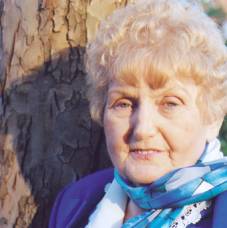
'Forgiveness is as personal as chemotherapy - I
do it for myself.'
Eva Korr
What makes some people able and willing to forgive while others steadfastly get locked into vengeance?
Being a Christian, like Gee Walker, may inspire someone to try to forgive but it doesn't automatically make it any easier, since personality traits play a large part in any predisposition. According to psychologist and counsellor Everett L Worthington, a leading American scholar in the field of forgiveness, 'Among the main personality traits, agreeableness has a positive relationship to forgiving while neuroticism (emotional reactivity) has a negative relationship. Traits like anger, fear, hostility, aggression and narcissism all predict unforgiveness, while having a disposition for empathy, sympathy and compassion predicts forgiveness.'
All this seems fairly predictable but actually the subject is far more complex than that. From the many people I've interviewed and talked to I've learnt that forgiveness is a word that no one can agree on. It is a process and a journey that people choose to go on. It is not a destination because one day you might forgive and the next day hate all over again. But, above all, it isn't a soft option and it doesn't let the perpetrator off the hook. As Everett Worthington told me: 'It is perfectly possible to find a place of forgiveness deep within yourself, but still want the perpetrator to stay firmly locked up in jail.'
It seems many people want to forgive (if for no other reason than they know it's the wise health choice physically and mentally) but often they don't know how. Assistance can be sought through following a spiritual path, taking self-development courses or reading self-help books, but it won't necessarily be found. Perhaps the launching pad for forgiveness, for taking that first step to moving on and shaping a better future is as the mother of one murder victim told me - 'Forgiveness is giving up all hope of a better past.' If you can do that then forgiveness may be difficult, painful and costly but potentially transformative.
Of those I have met who have most effortlessly embraced forgiveness it has come from what the South Africans call ubuntu - a word which can be cumbersomely translated as meaning 'my humanity is inextricably linked to your humanity'; in other words this sense that we are not separate from our fellow human being, no matter how heinous their behaviour.
For me Alexander Solzhenitsyn summed this up most aptly and most beautifully in his Nobel Prize acceptance speech in 1970 when he said: 'If only there were evil people somewhere insidiously committing evil deeds, and it were necessary only to separate them from the rest of us and destroy them. But the line dividing good and evil cuts through the heart of every human being - and who is willing to destroy a piece of his own heart?'

Got something you want to share? Upload it at 'Send Us Stuff'.

